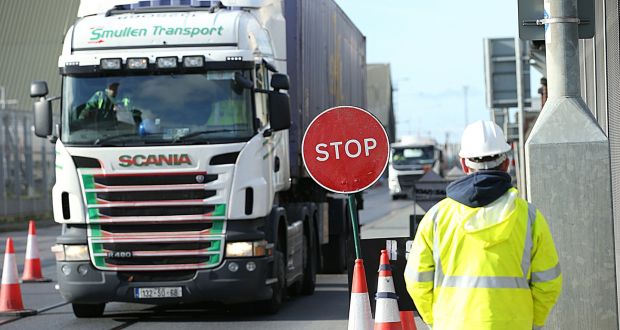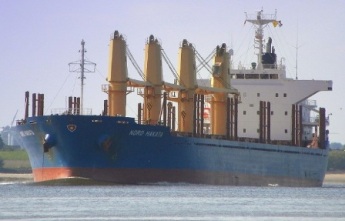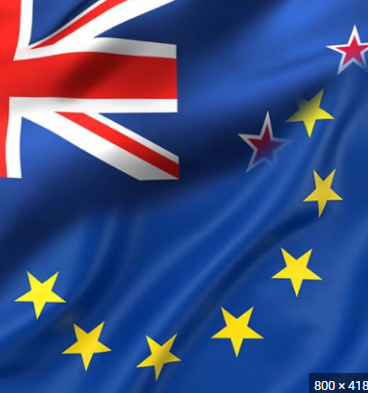
Tag: Trade





Trade Update
Since the inauguration of President Trump on 20th January, there have been a major shift in US trade policy back towards protectionism. Whilst this has not directly affected UK agriculture yet, it has caused significant upheaval, particularly in the likes of Canada and Mexico. These countries narrowly avoided a trade war and the imposition of 25% tariffs on all exports to the US. The imposition of tariffs have been suspended for a month, although US officials have suggested that the tariff threat was intended as leverage in ongoing trade talks, rather than a permanent policy shift. There is also a universal 25% tariff on steel imports and a 10% tariff on aluminium. These announcements have created significant volatility in commodity prices and exchange rates which, in turn, have contributed to greater market uncertainty, including for agricultural commodities.
There are some indications that the EU is next on the Trump administration’s hit-list as it views several aspects of EU trade policy, including sanitary and phytosanitary (SPS) regulations as being unfair to the US. It remains to be seen how this will play out as the Trump administration is also using the threat of tariffs to gain concessions elsewhere (e.g. border control and security) as it has done with Canada and Mexico. Of course, with the UK being outside of the EU, it would not be directly affected by such moves. That said, a bilateral trade spat between the UK and the US cannot be ruled out although the British Government is doing its best to stay on the right side of Trump on most issues.
Therefore, whilst the new US administration has brought greater uncertainty to commodities markets and threats of tariffs being imposed at short notice, the effects on British agriculture have thus far been relatively low. Longer term, the possibility of a US-UK free trade agreement cannot be completely ruled out, although any deal would have to offer significant advantages to the US. Such a deal would likely signify increased competition for products such as beef and pork although there could be some opportunities for British lamb and some dairy products.
The world has entered a period of significant upheaval, not just in terms of trade policy, but politically as well. Navigating through this will require a careful balancing act particularly as the UK would like to reset (closen) its relationship with the EU whilst also striving not to do anything to disrupt its relationship with an unpredictable US administration. The next four years are going to be eventful!

EU-Mercosur Trade Deal Negotiation
After more than two decades of negotiations and false starts, the EU and Mercosur (a South American trade-bloc consisting of Brazil, Argentina, Uruguay and Paraguay) concluded negotiations on a Free Trade Agreement (FTA) on 6th December. Whilst it is the biggest FTA negotiation that the EU has ever concluded, and despite the environmental safeguards now built-in which hindered the deal in recent years, there are still several hurdles to overcome before the deal would enter into force. That said, the conclusion of negotiations is notable and the FTA would have a significant impact on EU agriculture if enacted. It would also have indirect implications for the UK.
The key provisions of the agreement are:
- Market access: significant tariff reductions for agricultural exports from Mercosur to the EU, with quotas introduced on more sensitive products (see next points). There will also be export opportunities for EU agricultural sectors like wine, spirits, and dairy products into Mercosur markets.
- Tariff Rate Quotas (TRQs) for Mercosur exporters to the EU:
- Beef: 99 Kt of carcass weight equivalent (CWE), of additional quota for Mercosur exports to the EU, subdivided into 55%fresh and 45% frozen with an in-quota tariff rate of 7.5%. There will also be an elimination of the existing in-quota rate in the Mercosur-specific WTO “Hilton” quotas, once the new FTA enters into force (combined this equates to around 46.8 Kt, which signifies a net increase of about 52.2 Kt, once the full TRQ has been phased in). The volume under the new FTA will be phased in in six equal annual stages.
- Poultry: 180 Kt CWE duty free, subdivided into 50% bone-in and 50% boneless. This will also be phased in via six equal annual stages. The 2024 updated negotiations also feature an additional 1.5 Kt of TRQ to Paraguay.
- Pigmeat: 25 Kt with an in-quota duty of €83 per tonne. The volume will be phased in in six equal annual stages.
- Sugar: elimination at entry into force of the in-quota rate on 180 Kt of the Brazil-specific WTO quota for sugar for refining. No additional volume other than a new quota of 10 Kt duty free at entry into force for Paraguay. Specialty sugars are excluded.
- Ethanol: 450 Kt of ethanol for chemical uses, duty-free. 200 Kt of ethanol for all uses (including fuel), with an in-quota rate 1/3 of MFN duty. Again, to be phased in in six equal annual stages. The 2024 updated negotiations also allow for an additional TRQ of 50 Kt of biodiesel to Paraguay on account of its land-locked and developing country status.
- Rice: 60 Kt duty free. This will again be phased in in six equal annual stages.
- Reciprocal tariff rate quotas: these will be opened by both sides and phased in over 10 years;
- Cheese: 30 Kt duty free. This will be phased in in ten equal annual stages stages. The in-quota duty will be reduced from the base rate to zero in ten equal annual cuts starting at entry into force.
- Milk powders: 10 Kt duty free. This will also be phased in in ten equal annual stages, with a similar reduction in in-quota duty as outlined for cheese.
- Infant formula: 5 Kt duty free. The will again be phased in via ten equal annual stages with similar reductions in in-quota duties as described above.
- Environmental safeguards: adherence to the Paris Agreement is included as an ‘essential element’ of the FTA. The agreement could be suspended if a party leaves the Paris accord or stops being a party in ‘good faith’ (i.e. undermines it from within). There are also additional provision around promoting sustainable supply-chains, helping to conserve biodiversity / livelihoods of indigenous peoples, especially in the Amazon.
There are concerns amongst several EU Member States, notably France, Ireland and Poland, about cheap imports from Mercosur undercutting EU products, compounded by less stringent production standards. A 2021 study by the Irish Government estimated that the EU-Mercosur deal could reduce the value of Ireland’s beef output by €44 – €55 million, equating to around 2-3% of output.
Whilst South American beef might not be permitted to come into the UK as a result of the EU-Mercosur FTA, there could be indirect impacts. For instance, displaced Irish beef will seek to find markets elsewhere with the UK being the most obvious choice. This could exert some downward pressure on UK beef prices, particularly in the food services segment. That said, UK beef prices have been very firm of late due to lower supply and in any case, it may take several years’ yet before an EU-Mercosur FTA enters into force, even if it gets that far. The likes of France and Ireland are likely to push back strongly against the deal.
Of course, if the EU can negotiate an FTA with Mercosur, the UK will also have an interest in exploring FTA opportunities, but that does not appear to be a priority for Labour presently. If/when negotiations do start, Mercosur is likely to seek more significant concessions with the UK, especially bearing in mind the precedent set by the Australia and New Zealand FTAs. However, it could be after the next UK General Election before a concrete trade deal is reached with the likes of Mercosur.
UK Joins CPTPP
On 15th December, the UK formally joined the Comprehensive and Progressive Agreement for Trans-Pacific Partnership (CPTPP). Before the UK joined, the CPTPP trade-bloc consisted of 11 members with a combined population of around 520 million people. Many of these countries are in Asia and have been growing strongly to date. That said, the UK already has trade deals in place with most of these countries with Malaysia being the only significant addition. This means that the impact of the UK’s membership of the CPTPP will be limited from an agricultural perspective, as most agricultural trade between the UK and the CPTPP countries will continue to be conducted via these bilateral trade deals.
Our April 2024 article (see: https://abcbooks.co.uk/agreement-reached-on-uk-joining-the-cptpp/) provided further information on the extra market access for agricultural products that other countries would have to the UK. This included:
- Beef: a duty-free TRQ of 13Kt will be phased in over 10 years and will start at 2.6Kt. It is only be available to Canada, Mexico, Chile, Peru, Malaysia and Brunei. Importantly, any beef imports will have to meet UK Sanitary and Phytosanitary (SPS) requirements. Australia and New Zealand will not get any further access to the UK market under the CPTPP.
- Pork: a 55Kt TRQ will be phased in over 10 years (starting at 10Kt). Again, this will be available to the same countries listed above. Vietnam and Singapore will also have access to this TRQ for an initial 3-5 year period before their duties are eliminated via a bilateral FTA with the UK.
- Chicken: a TRQ of 10Kt will again be available to the countries listed above. A 10-year phase-in period will again apply. Vietnam and Singapore will again have access to this TRQ for an initial 3-5 year period before tariffs on imports from these countries are eliminated.
Whilst the UK’s accession to the CPTPP will have a small overall impact, it still presents export opportunities in a variety of areas including whisky and dairy products. It also sends a message that the UK is prepared to engage in international trade with like-minded partners. Such deals might become less frequent with the onset of a Trump presidency in the US. That said, the UK’s trading relationship with the EU will remain by far the most important from an agricultural perspective.

UK-EU Relationship Under Labour
Following Labour’s election victory on 4th July, there has been a renewed focus on the UK-EU trading relationship and how it might evolve under the new Government. Whilst Labour has ruled out the UK rejoining the EU’s Single Market and Customs Union, below are a number of areas where, from an agri-food perspective, the UK-EU trading relationship could be improved.
- Veterinary/SPS Agreement: since 2021, UK agri-food exports to the EU have faced stringent regulatory controls and checks, while similar checks on imports into the UK from the EU are gradually being implemented. These controls, such as export health certificates and identity checks, are costly. Labour has expressed a desire to pursue a Veterinary Agreement with the EU for over a year. The impact of this agreement on reducing the regulatory burden depends on its nature. If the UK dynamically aligns with EU legislation, most checks could be removed, but the UK would have no formal vote on the rules. If the UK opts for equivalence, similar to New Zealand, checks would be reduced but still significant, and the UK would maintain control over its rules. Importantly, a Veterinary Agreement would only cover a limited aspect of the wider Sanitary and Phytosanitary (SPS) requirements; issues such as plant health rules and phytosanitary requirements would not be included and would represent significant hurdles to trade. Therefore, Labour is increasingly talking about a wider SPS Agreement with the EU, which has merit and should be pursued. Again, there will be a trade-off between the degree of access to the EU Single Market and the control that the UK would have on the rules that apply to UK trade. The EU will also have its own perspective and will be keen to avoid the UK ‘cherry-picking’ the parts of the EU Single Market that it would like unfettered access to. An SPS deal would also benefit agri-food goods moving from GB to Northern Ireland. Whilst a deal is achievable, its comprehensiveness and the extent of regulatory burden removal remain uncertain.
- Mutual Recognition of Conformity Assessment: currently, UK products being exported to the EU (e.g. machinery) need EU-based certification to enter EU markets. This can no longer be done by UK-based laboratories, and therefore, adds costs and complexity. The UK could seek an agreement similar to those the EU has with countries like Australia and Canada, easing this burden.
- Safety & Security Declarations: post-Brexit, UK exporters must submit new export summary declarations to the EU to verify that such products do not pose risks. The UK could negotiate an agreement to remove these requirements, similar to deals the EU has with Switzerland and Norway. Again, this would require some alignment with EU rules and regulations.
- Temporary Labour and Youth Mobility: new arrangements could allow UK performers and artists to work temporarily across the EU without complex visa requirements, addressing current bilateral challenges, but importantly, it would not be Freedom of Movement. The UK could also establish reciprocal youth mobility agreements with EU countries, enabling young people to work temporarily in each other’s territories. The EU had previously made labour mobility proposals but these were rejected by the Conservative Government.
- Mutual Recognition of Professional Qualifications (MRPQs): the UK and EU could encourage mutual recognition of professional qualifications, easing the movement of professionals between regions. There will be difficulties here though as, within the EU, the competence for granting such recognition partly rests with Member States, so negotiations would be complex.
- Linking Emissions Trading Schemes (ETS): aligning the UK and EU’s carbon pricing systems could streamline processes and mitigate issues like the EU’s Carbon Border Adjustment Mechanism (CBAM), which imposes additional requirements on UK exports of carbon-intensive goods. Whilst CBAM does not yet extend to agricultural goods, this could change in the future and from 2026, there is the potential to have charges levied on exports of certain industrial goods (e.g. fertiliser, steel and cement) to the EU.
- Joining the PEM Convention: the Pan-Euro-Mediterranean (PEM) Convention on preferential Rules of Origin (RoO) aims at establishing common RoO amongst member countries which currently include the EU, Turkey, the Ukraine and EFTA Member States. This would allow the UK to consider inputs from other PEM members as ‘local’ for meeting RoO requirements in trade agreements, potentially simplifying trade processes. However, there are difficulties as the UK-EU Trade and Cooperation Agreement (TCA) rules are different to the PEM Convention in some instances and these would require aligning.
Significant improvements to the UK-EU relationship are possible, but there will still be a trade-off between access to the EU Single Market and the UK’s control over its own rules. Even with new arrangements, agri-food trade will face more friction than if the UK rejoined the EU Single Market and Customs Union, as some advocate. Sir Keir Starmer is known for seeking incremental improvements and only considering radical changes if gradual measures fail. Therefore, the Labour Government is likely to focus on the areas mentioned, leveraging the UK’s strengths in security and defence in negotiations with the EU. A deal is achievable, though its comprehensiveness and alignment with EU regulations remain uncertain.

EU / NZ Trade Deal
On 1st May 2024, the EU-NZ Free Trade Agreement (FTA) entered into force. This follows the initial announcement of the FTA back in July 2023 (see https://abcbooks.co.uk/eu-nz-trade-deal/) and the ratification of the deal by the EU in November.
The EU will benefit from the elimination of tariffs on key exports to NZ such as pig meat, wine (& sparkling wine), chocolate, sugar confectionary and biscuits. In return, NZ achieves limited access to the EU market for imports of sensitive agricultural products such as beef, sheep meat and dairy products, through tariff rate quotas (TRQs). This includes 10,000 tonnes of beef (phased in over 7 years) at a reduced tariff of 7.5%. A duty-free TRQ for 38,000 tonnes of sheepmeat will also be phased in over the same period. There are also new TRQs for milk powder and butter (both 15,000 tonnes, with varying duty rates), cheese (25,000 tonnes; 0% duty) and high-protein whey (3,500 tonnes; 0% duty). All of these TRQs will also be phased in over 7 years.
As reported previously, NZ’s access to the EU market is much more curtailed for beef, sheepmeat and dairy products in comparison to the relatively more generous access that the UK has granted. This is a function of the greater bargaining power of the EU and the eagerness of the UK to sign a new FTA with NZ as part of its independent trade policy.
